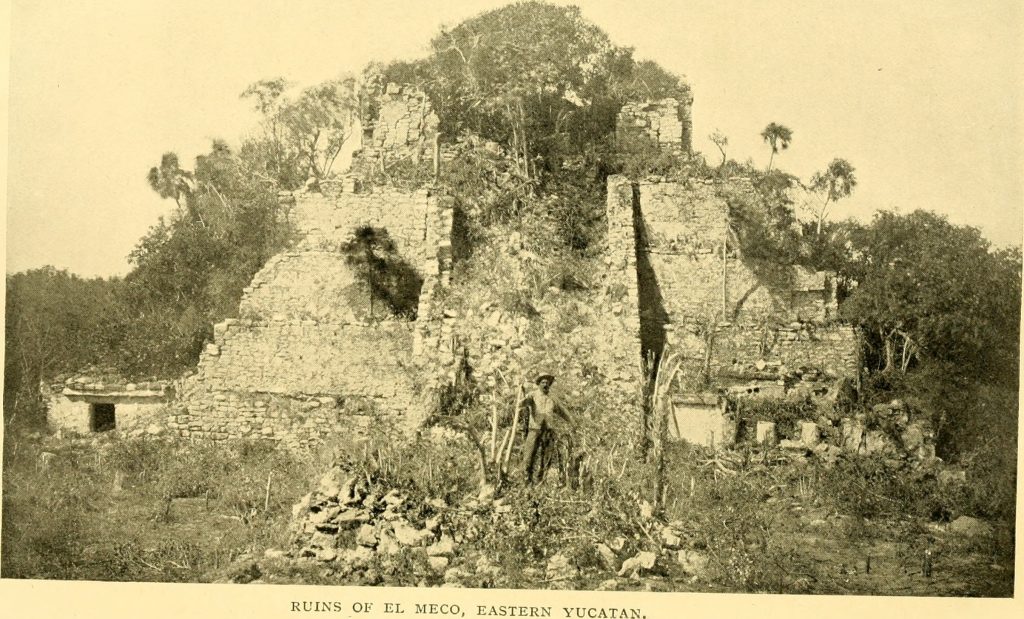
The American Egypt by Channing Arnold and Frederick Tabor Frost
The American Egypt: A Record of Travel in Yucatan was published 1909. Written by English journalists Channing Arnold and Frederick J. Tabor Frost, this book was an account of Arnold and Frost’s travels in the Yucatan Peninsula. They embarked on their travels shortly after the liberal reform movement in Mexico, and documented their observations of indigenous ruins, art, and mythology, as well as the current state of affairs in Mexico. The journalists’ eurocentric views were very evident, as their observations were deeply demeaning towards Mexican culture and people, criticizing their government, practices, and morals. While it is not an accurate depiction of Mexican history by any means, The American Egypt does offer insight into European views of South America during the early 20th century.
The authors’ views of Mexico throughout the book were overwhelmingly negative. Arnold and Frost portrayed all of the Mexican people they came across as lazy, uncivilized slobs, stating that “they [were] bigots, and they [were] naturally bullies”(337). They lamented the lack of hospitality, stating that everyone they encountered was rude and uncivilized. The authors made broad, sweeping generalizations about the natives: “This terrible cruelty is a sad heritage of all Yucatecans. The Spaniard is naturally cruel, and there is no kind of doubt that the Mayans, like all the Indian races of the Americas, are so too. Thus the Yucatecans inherit this detestable trait from both their parents“ (349). They believed that the only thing keeping Mexico afloat was foreign investments, and that the country was “beyond redemption”. Their attitude towards Latin America was seemingly the prevailing one in Europe at the time, and their book and writings similar to theirs certainly reinforced these beliefs.
At the time of Arnold and Frosts’ travels, Mexico was under the rule of dictator Porfirio Diaz, who remains one of Mexico’s most despised rulers to this day. Diaz came to power in 1877 after leading a revolt against President Sebastián Lerdo de Tejada. He ruled for 31 years, the longest presidency in Mexico’s history. He adopted oligarchical policies which favored the elite and wealthy, leading to an eventual economic crisis. Diaz was eventually ousted in the 1911 Mexican Revolution. Strangely, Arnold and Frost praised the ruler, despite his mistreatment of his constituents, showing how out of touch they were with the people of Mexico, and how their prejudice clouded their perceptions. Documents such as The American Egypt show how racist attitudes towards Latin America led to misrepresentations of the region in Europe.
Works Cited
Channing Arnold and Frederick J. Frost, The American Egypt: A Record of Travel in Yucatan, (England: London Hutchinson & Co. Paternoster Row, 1909)
Louis de Planque et al., “The Mexican Revolution and the United States in the Collections of the Library of Congress Mexico during the Porfiriato,” Library of Congress, accessed January 30, 2023, https://www.loc.gov/exhibits/mexican-revolution-and-the-united-states/mexico-during-the-porfiriato.html.
“The Mexican Revolution: November 20th, 1910,” NEH, March 19, 2012, https://edsitement.neh.gov/closer-readings/mexican-revolution-november-20th-1910.
